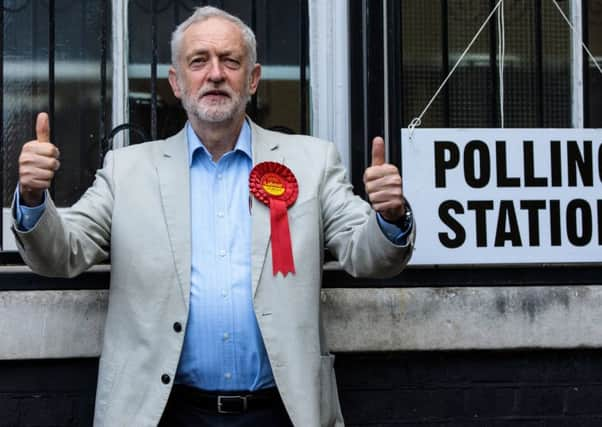Ian Swanson: Corbyn still doesn't get a vote of confidence


The results of the English council elections suggest there has not been much shift in public opinion in the past year, with Labour and the Tories tied on 35 per cent of the vote.
No doubt many voters here, weary of elections and referenda, were glad of a break – though an election in Scotland might have been more interesting: Would the SNP have lost more seats after last year’s setback? Could the Tories have advanced much further? How would Labour have fared?
Advertisement
Hide AdAdvertisement
Hide AdBut Thursday’s apparent stalemate – with projections suggesting the votes would translate into another hung UK parliament – is in itself significant. Theresa May, whose demise was repeatedly forecast following her failure to get the mandate she asked for at the unnecessary 2017 election, has clung on to office and seems to have a good chance of surviving a while yet.
Labour, meanwhile, appears not have made much progress since Jeremy Corbyn surprised the pundits with a far better performance than expected last year.
The party made limited gains, despite its best results in London since 1971. But it made the mistake of talking up chances of taking key Tory-held councils which it then failed to win. The Tories, by managing to hold onto power in these places – although they did lose their northern flagship authority of Trafford – emerged looking like victors.
It is indeed remarkable that after Grenfell, Windrush, four Cabinet ministers being forced to resign within six months, and the chaos and uncertainty of Brexit, they were not given a drubbing. As Mr Corbyn’s critics have said, in these circumstances Labour should be way ahead in the polls and trouncing the Tories.
Advertisement
Hide AdAdvertisement
Hide AdEdinburgh South MP Ian Murray has said: “Given we have the worst Conservative prime minister in history, the most divided Conservative government in history, days before the local elections the Home Secretary resigns, Brexit is going wrong and the economy is dragging along the bottom, yet the Tories get a small swing outside London; it’s quite extraordinary. We should be 20 points ahead; someone has to look into what went wrong. For a party that wants to aspire to be in government, this was an unmitigated disaster.”
Mr Corbyn admitted to being “disappointed” but argued that Labour consolidated its general election gains and put in a “solid” performance.
It is worth remembering that local elections are not necessarily a good guide to what will happen in a vote for Westminster – Labour won just 27 per cent of the vote in last year’s council elections, but four weeks later took 40 per cent in the general election.
Polls expert Professor Sir John Curtice calculated that a repeat of last week’s vote in a general election would have made Labour the biggest party, albeit without an overall majority.
Advertisement
Hide AdAdvertisement
Hide AdNevertheless, they were poor results for a party hoping to win power and bring about radical change. If the current circumstances cannot produce a landslide for Labour, it is difficult to see what will.